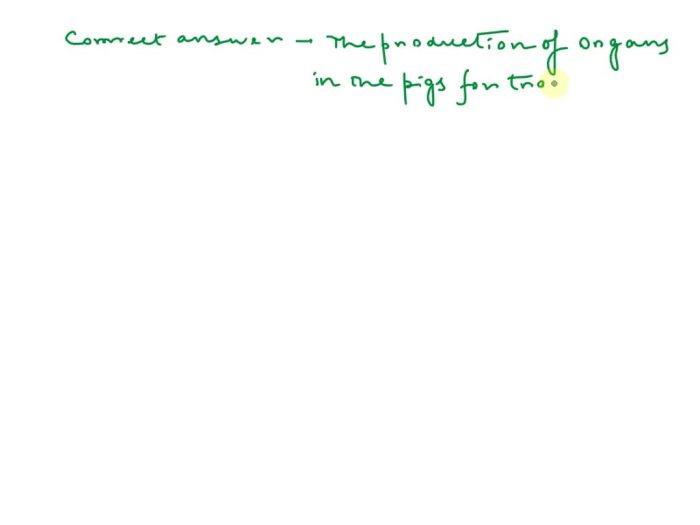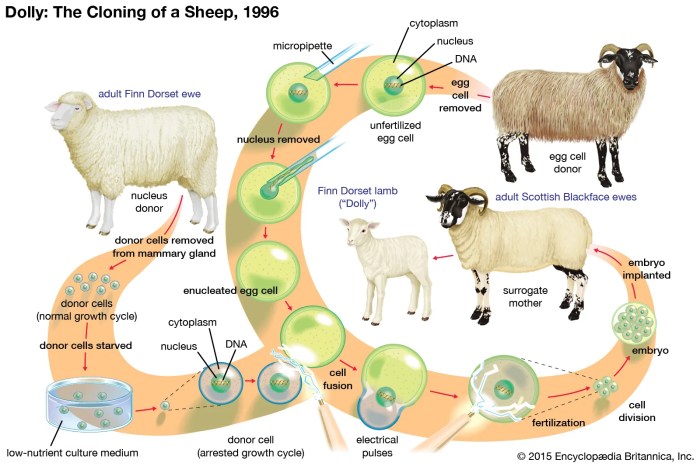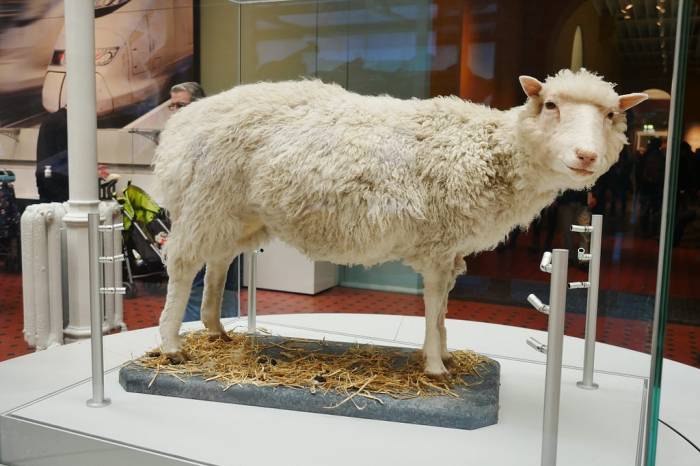Reproductive cloning has many applications. choose the exception. This technology holds immense potential for scientific advancements, economic benefits, and ethical challenges. As we delve into the realm of reproductive cloning, we will explore its multifaceted nature, examining its scientific applications, economic implications, legal frameworks, public perceptions, and ethical considerations.
Reproductive cloning involves creating a genetically identical copy of an existing organism. This technique has garnered significant attention due to its potential to revolutionize medicine, agriculture, and conservation efforts. However, it also raises important ethical questions regarding animal welfare, human genetic manipulation, and the potential misuse of the technology.
Reproductive Cloning: Ethical, Scientific, Economic, Legal, and Public Considerations: Reproductive Cloning Has Many Applications. Choose The Exception

Reproductive cloning, the process of creating a genetically identical copy of an existing organism, has garnered significant attention due to its potential applications and ethical implications. This article explores the ethical, scientific, economic, legal, and public perception aspects of reproductive cloning, providing a comprehensive analysis of this complex technology.
Ethical Considerations, Reproductive cloning has many applications. choose the exception
The ethical implications of reproductive cloning raise concerns about animal welfare and the potential exploitation of animals. Cloning involves the use of animals as surrogate mothers, which can pose risks to their health and well-being. Additionally, there are concerns about the potential for reproductive cloning to be used for unethical purposes, such as creating designer babies or manipulating human genetics.
Common Queries
What are the potential benefits of reproductive cloning?
Reproductive cloning has the potential to advance medical research, preserve endangered species, and improve crop yields.
What are the ethical concerns surrounding reproductive cloning?
Ethical concerns include animal welfare, the potential for creating designer babies, and the manipulation of human genetics.
How is reproductive cloning regulated?
The legal and regulatory frameworks governing reproductive cloning vary across different countries.


